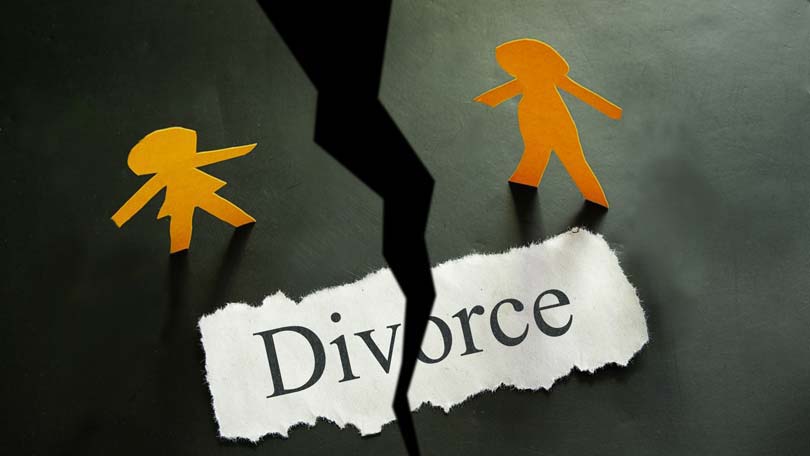
Who said divorce had a pretty face anyway?
No matter how you slice it, it’s still a monster that wears an ugly face and can wreck the lives of people the way a mighty hurricane does. It is difficult to stomach the fact that two people were once madly in love, thinking of the other as the greatest thing that ever happened in their life and then end up fighting like jungle warriors. We’ve heard of poetic expressions such as “she brings out the best in me”, “he’s brought light into my life where it was once darkness” or “her love is all I need to survive.”
You give these lovers a few years, a kid or two, some issues that remain unresolved and what do you get?
Poof! The love goes up in smoke and the flames end up as dying embers. Did you know that the Canadian Oxford dictionary also defines “ember” as an almost extinct residue of a past activity, feeling? Is the ember then a symbolic representation of a divorce because the feelings are no longer there?
So much for waxing poetic. When a divorce is hanging above our heads, there is neither time nor inclination for eloquent poetry. Ammunition will have to replace poetic justice. This time, as crude as it sounds, it’s time to make war not love.
Given that a divorce can be ugly, Ronald Sharp (Winning the Divorce War, 2005) suggests that individuals should plan for it, even before they get married. That’s rather a cold, cruel way of looking at it. Just think, how can two people who love each other and are about to get married even think of preparing for a divorce? It’s like saying, get married if that’s what your heart desires, but your marriage is doomed anyway, so plan for the second step.
Heartless, you scream. You’re crying out, “that’s unrealistic!”
We’re quite willing to accept heartless, but unrealistic? Remember the 50% rule? Fifty percent of marriages today end in divorce. You still think planning for a divorce even before the wedding date is unrealistic?
A Divorce Can Be Ugly – But if You Prepare for It…
You could save your sanity. Your pocket. Your child.
We’re going to borrow some suggestions voiced by two authors who have written books on divorce. The first one is Ronald Sharp who we mentioned earlier has ideas that may enlighten divorcing couples so they don’t get short-changed in the proceedings and in the final settlement. His views are somewhat bereft of emotion (“to maintain objectivity, you must consider your spouse the enemy”) and he could be misinterpreted as taking a relentless adversarial approach. But then, isn’t an action for divorce premised on an adversarial battle? Besides, his book is focused on protecting your own interests, so if it means having to harness all possible tactics to manipulate to your advantage, his advice deserves to be considered.
The second author is a woman – Judith S. Wallerstein – and this time she looks at the emotions side and offers advice on how to deal with the breakup. Her focus is on how to emotionally survive the ugliness of divorce by taking on three basic challenges that you can’t ignore.
Some writers who expound on the theory and practice of divorce mention the film War of the Roses because it truly portrayed the marriage as good at first but it turned to bad and ugly when the Roses filed for a divorce. And bad is an understatement. It was more like nasty…vicious…their deeds put the devil to shame. If you haven’t seen it, it rates a 9.5 on a scale of 10. Your video store must have it in the “old films” section.
Two Views to Making it Less Ugly
If we have to take an adversarial stance, so be it. Here’s what Sharp has to say:
If you’ve got emotions running at strong cross currents, you’ll need help to deal with them, so you may want to ask a professional to show you how to deal with the turmoil. Once you’ve got a lid on your emotions, you can focus on divorce planning. The first step, Sharp says, is to plan for it before it happens. If at all possible, plan for it well before the wedding date. One way – and many couples are doing this incidentally – is to get a written premarital agreement in place. Once married, detail your involvement with the children. Be informed of all of your spouse’s financial dealings, and arrange the ownership of property to your advantage.
Sharp says he sees one or two common mistakes divorcing couples make. Because they’re still licking their wounds, they fail to see the larger picture. As an example, having custody of the children appears to be the most important goal of all divorcing couples. His observation is that many people are prepared to give up everything as long as they can keep the children with them. But Sharp says that sometimes they fail to realize that what they really want is to be able to maintain a loving relationship with their children.
Think about Sharp’s questions:
- Do you really want custody? Are you prepared to be the parent who prepares all the meals, washes the clothing, does the shopping, chauffeurs them to lessons and ball practice?
- Do you want to have to look for a sitter every time you want to go out?
- Are you prepared to be the one to discipline them? Or to be the one who takes care of them when they are sick?
As for keeping the house, Sharp recommends thinking about the costs to maintain the house. Yesterday, you had two incomes supporting the household and going towards the heating, mortgage, yard and pool upkeep, and a hundred other expenses. Today, with the divorce, there’s the strong possibility of having only one income. A smaller, less expensive house would probably be a safer bet.
What is key, Sharp says, is never to tell your spouse your goals for the divorce because your spouse is your enemy. Anything your spouse gets is something you won’t get.
We’ve presented Sharp’s arguments as the logistics part of the divorce. These issues explain why divorce can be ugly. If your strategy is weak, it could even be uglier. This is why you shouldn’t sail the ship alone without a navigator. A lawyer knows the options. You don’t. A lawyer knows the procedures and how to cut through the legalese, you don’t.
Not unless you’ve been voraciously reading divorce judgments yourself.
As for the challenges that Judith Wallerstein says you need to face head-on, these are her thoughts:
First challenge: get a grip. Restore your old self and put it back into good, working order. Rebuild your support systems, regain your balance. You’ll need all the strength to cope with more challenges in the future.
One reason that couples divorce is because of abuse – physical or verbal. Patricia Evans explains that the verbal abuser puts down the abused to the point wherein self-perception begins to blur. If the spouse is repeatedly criticized (you’re illogical, you can’t think for yourself, you’re dreaming in technicolor, you’re argumentative and competitive, etc), the one who’s taking these criticisms becomes conditioned to accept more and more abuse while experiencing more feelings of self-doubt. It is almost the equivalent of brainwashing.
Here is a case that Patricia Evans cited as an example:
“Luke constantly presented to me that I had a flaky family. He did this in subtle ways. I gradually began to think he was in touch with the real world and I and my family weren’t. I became confused. Actually, when I thought about my relatives, I realized they were highly respected and had made real contributions to society. Still I felt like there was something wrong with my background – like his family was more solid. Actually, now I can see that none of this was true. It was like brainwashing.”
(The Verbally Abusive Relationship, by Patricia Evans, p. 113).
The example given by Evans reflects a woman who met the first challenge posed by Wallerstein – to wake up and regain the confidence you once had.
Second challenge: channel your energies towards your children. Prepare them for the breakup and give them lots of support. Choose the best custody arrangement for them but review it periodically because their needs and circumstances will change.
Third challenge: create a new relationship with your ex-spouse, so that you can both redefine your roles as co-parents after a divorce and how to sustain those roles for the sake of the children. Psyche yourself up because it’s a totally new ballgame in an altogether different playing field.
Wallerstein points out that all three challenges begin on day 1 of the divorce, and will last indefinitely. “This is why divorce is so complicated and why so many people don’t benefit from their divorces. Just because you succeed at one challenge does not mean you’ll do well at the other two. But if you succeed in meeting all three, I believe you can open up new opportunities in your life and put the disappointments of your marriage behind you, once and for all.” (What About the Kids, 2003)
All this talk about divorce is so serious. How about if we end this article on the lighter side of things?
Lois Misiewicz submits a lot of divorce jokes on the Internet. We picked one for you:
“Congratulations, my boy!” said the uncle. “I’m sure you’ll look back and remember today as the happiest day of your life.” “But I’m not getting married until tomorrow,” the groom protested. “I know,” replied the uncle. “That’s what I mean.”





